| Hlaskover Rock | ||||
|---|---|---|---|---|
 | ||||
| Studio album by | ||||
| Released | 1999 | |||
| Recorded | 1998–1999 | |||
| Genre | Punk rock | |||
| Label | Rock'n'roller | |||
| The Analogs chronology | ||||
| ||||
Hlaskover Rock is the third album by Polish punk rock band The Analogs.
| Hlaskover Rock | ||||
|---|---|---|---|---|
 | ||||
| Studio album by | ||||
| Released | 1999 | |||
| Recorded | 1998–1999 | |||
| Genre | Punk rock | |||
| Label | Rock'n'roller | |||
| The Analogs chronology | ||||
| ||||
Hlaskover Rock is the third album by Polish punk rock band The Analogs.
Titles in parentheses are translations from Polish.
Underground most commonly refers to:
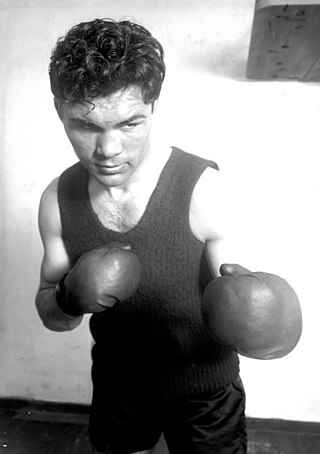
Maximilian Adolph Otto Siegfried Schmeling was a German boxer who was heavyweight champion of the world between 1930 and 1932. His two fights with Joe Louis in 1936 and 1938 were worldwide cultural events because of their national associations. Schmeling is the only boxer to win the world heavyweight championship on a foul.

Joseph Louis Barrow was an American professional boxer who competed from 1934 to 1951. Nicknamed "the Brown Bomber", Louis is widely regarded as one of the greatest and most influential boxers of all time. He reigned as the world heavyweight champion from 1937 until his temporary retirement in 1949. He was victorious in 25 consecutive title defenses, a record for all weight classes. Louis had the longest single reign as champion of any boxer in history.
The Ring magazine was established in 1922 and has since named a Fight of the Year, which this list covers.

Maximilian Adelbert Baer was an American professional boxer and the world heavyweight champion from June 14, 1934, to June 13, 1935. He was known in his time as the Livermore Larupper and Madcap Maxie. Two of his fights were rated Fight of the Year by The Ring magazine. Baer was also a boxing referee, and had occasional roles in film and television. He was the brother of heavyweight boxing contender Buddy Baer and father of actor Max Baer Jr. Baer is rated #22 on The Ring magazine's list of 100 greatest punchers of all time.

The sport of boxing in the 1930s was affected by one of the biggest economic struggles in the history of the United States: the depression era. Because of the suffering American economy, many boxers were offered lower amounts of money causing them to only box for passion. When the decade began, the world Heavyweight title belonged to no one. The sport of boxing suffered because of the lack of money to pay the boxers.
Joe Louis vs. Max Schmeling refers to either of two separate fights between the two boxers which are among boxing's most famous bouts. Schmeling won the first match in 1936 by a knockout in round 12 and Louis won the second bout in 1938 with a knockout in the first round.
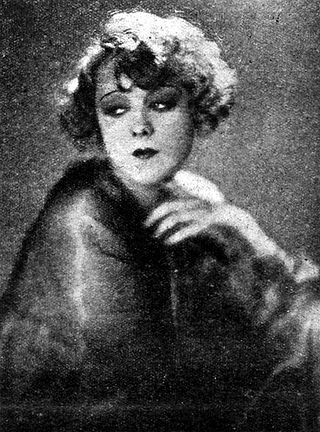
Anny Ondra was a Czech film actress. She began her career in 1920 and appeared in Czech, German, Austrian, French and English films. In 1933, she married German boxing champion Max Schmeling.

The Analogs are a Polish street punk band. Originating in Szczecin, they have been successful on the local and international punk rock scene with hundreds of concerts played across Europe as well as musical releases in Poland, Russia, and the USA. The Analogs have seen coverage in major Polish news outlets as well as many alternative music publications and punk zines.
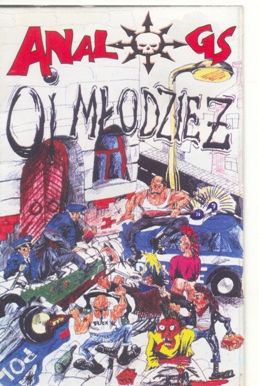
Oi! Młodzież is the debut album of Polish street punk band The Analogs. Released only as an audio cassette, as the Rock'n'roller label did not release CDs then. The album had been re-released as a split CD under the title Oi! Młodzież/Mechaniczna Pomarańcza, including a debut album from another Polish punk rock band, Ramzes & The Hooligans.
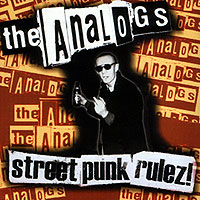
Street Punk Rulez! is a second album of Polish punk rock band The Analogs, and the band's first one released as a CD. The CD version includes three bonus tracks, re-recorded songs from the previous album Oi! Młodzież. Most of the lyrics and music for this album were written by Paweł Czekała, but as he was at the time of recording in prison, Artur Szmit substituted him as a bass guitar player.

Blask Szminki is an album released by Polish punk rock band The Analogs.

Najlepsze z najgorszych is a compilation vinyl longplay released by Polish punk rock band The Analogs specially for the band's 10th anniversary. It includes new versions of band's songs. In 2007 this album was re-released on CD, as a digipack. The first disc (CD) contained the same 15 tracks, as vinyl, the second one was DVD, including a TV movie "Te Chłopaki", by Monika Petryczko with Marek Mucha. The movie was produced especially for 10th anniversary concert in Kontrasty club in Szczecin. The DVD Includes also 5 music video, with "Pieśń Aniołów" mainly from the released in 2006 album "Poza prawem" (Outlaw)
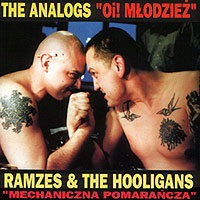
Oi! Młodzież/Mechaniczna Pomarańcza is a split CD of Polish streetpunk bands, The Analogs and Ramzes & the Hooligans.
David Margolick is an American journalist. He is long-time contributing editor at Vanity Fair. Margolick has held similar positions at Newsweek and Portfolio.com. Prior to joining Vanity Fair he was a legal affairs reporter at The New York Times, where he wrote the weekly “At the Bar" column and covered the trials of O.J. Simpson, Lorena Bobbitt, and William Kennedy Smith. In his fifteen years at the Times, the paper entered his work four times for the Pulitzer Prize. He remains a frequent contributor to The New York Times Book Review. His work has also appeared in The New York Review of Books, Tablet, and The Forward.
Street punk is an urban working class-based subgenre of punk rock, which partly emerged as a rebellion against the perceived artistic pretensions of the first wave of British punk. Street punk emerged from the style of Oi! and hardcore punk bands. A key band in defining the aesthetic was the Exploited. Street punks generally have a much more ostentatious and flamboyant appearance than the working class or skinhead image cultivated by many Oi! groups. Street punks commonly sported multi-coloured hair, mohawks, tattoos, heavily studded vests and leather jackets, and clothing, especially plaids, adorned with political slogans, patches, and/or the names of punk bands. In the 1990s and 2000s, a street punk revival began with emerging street punk bands such as the Casualties.

Walter Neusel was a German heavyweight boxer. During his career he held the distinction of being recognized as German Heavyweight Champion. Statistical boxing website BoxRec rates Neusel as the sixth best German boxer ever across all weight divisions.
Electronic rock is a music genre that involves a combination of rock music and electronic music, featuring instruments typically found within both genres. It originates from the late 1960s when rock bands began incorporating electronic instrumentation into their music. Electronic rock acts usually fuse elements from other music styles, including punk rock, industrial rock, hip hop, techno and synth-pop, which has helped spur subgenres such as indietronica, dance-punk and electroclash.

Hranoush Sidky Bey, better known as Madame Bey, also Hranuş Sıdki Hanım, was an American boxing trainer. She ran a boxing camp for world champion boxers in Chatham Township, New Jersey, in the United States. Her life and boxing camp are documented in the book Madame Bey's: Home to Boxing Legends. Her prominence during the time she operated her boxing camp from 1923 to 1942 is documented in the thousands of press photos taken at her camp. Forgotten today, her camp's namesake was an everyday occurrence in sports sections of newspapers.